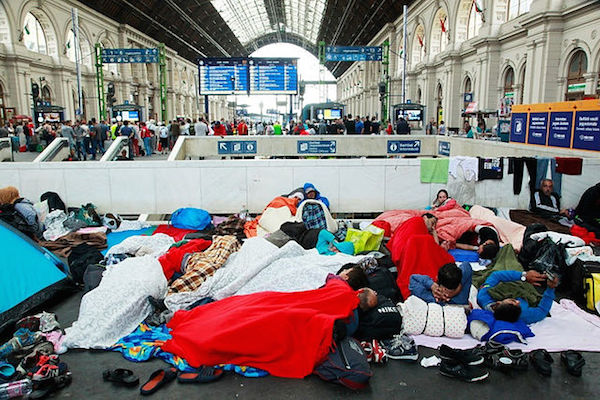
In the days of our grandparents and greatgrandparents, the poor and unjust country that was Spain had a dual system –which also existed in some other countries, but in the Spanish case had been established at the Cortes de Cádiz, the assembly convened in that city in 1810-14 to draw up a liberal constitution at the time of the Napoleonic invasion– whereby any young man called up for military service could legally evade it. One way was to pay what was known as ‘cash redemption’, by which a monetary payment –1,500 pesetas from 1882– cancelled the obligation. The other was to find a ‘substitute’ or ‘replacement’, which involved hiring another person to take one’s place, which many were willing to do in exchange for a much needed sum of money. This was essentially a way for well-off families to avoid having their sons drafted into the military at a time when there was an abundance of wars, domestic and overseas. The outbreak of war in Cuba, for instance, led to a marked rise in the number of ‘redemption’ payments.
Faced with the drama of the refugees, the head of German diplomacy, Frank-Walter Steinmeier, has warned of the consequences for the European project of not finding a solution to ‘what may be the greatest challenge in the history of the EU’. As the days pass, predictably, the challenge will become greater not lesser. Amid this maelstrom, it has gone almost unnoticed in the otherwise reasonable proposal from the European Commission for mandatory quotas of refugees that there it has a clause that allows a country not to accept its quota of refugees, that is, to opt out in exchange for paying a monetary fine instead. Essentially the same as the old and unfair ‘cash redemption’.
In any case, were the Commission’s proposal to be adopted, each country would receive €6,000 for hosting each refugee and transit countries €500 each to cover travel expenses. In the event of ‘exceptional circumstances’ and with ‘duly justified reasons’ to be evaluated by the Commission, the opt-out would apply ‘temporarily for one year’ and the country in question would have to pay an amount equal to 0.002% of its GDP to cover higher expenses in the other Member States, that would then have to distribute the quota among themselves. The amount is not all that much. Poland, for instance, would have to pay just over €8 million. Furthermore, it makes no sense that the fine would apply even if circumstances such as a natural disaster were to justify suspending the plan in a host country.
The reason underlying the clause is the Commission’s attempt to try to ‘seduce’ the countries that are reluctant to accept compulsory quotas. The latter are being categorically rejected by Hungary, Poland, Slovakia, the Czech Republic, Romania and Latvia. At the fateful meeting last 14 September the Interior Ministers of the 28 were even unable to reach a political agreement on sharing out 120,000 new refugees (over 40,000 were decided upon in May), a figure that is already hopelessly small. And there was practically no discussion about the opt-out clause. Previously, only Poland had shown some interest in the matter. Neither has the European Parliament challenged the clause, as it fast-tracked its approval of the Commission’s overall proposal with no amendments (370 in favour, 134 against and 52 abstaining). The ball is now in the court of the Heads of State and Government, who will meet tomorrow for an extraordinary summit entailing difficult negotiations not just between them, especially between East and West, but each with their own constituencies, even Angela Merkel.
By considering the possibility of an opt-out with a fine –again, the classic ‘cash redemption’– the Commission is opening up a dangerous precedent. It is true that there is already in place a principle of ‘the polluter pays’, which is not a European but a global system of purchasing emission rights for greenhouse gases and other pollutants, essentially borne by companies, a sort of environmental ‘cash redemption’. But in the case of refugee quotas in the EU it is human beings who are involved, and it is essentially to poorer countries –where those fleeing wars do not want to stay anyway– that the system is being offered. These countries are clear net recipients of funds from the Union, so the EU would now be funding them not to do their duty. No wonder that in such a situation the German Chancellor, Angela Merkel, has suggested that Member States that do not want to accept their fair share of refugees should see a reduction in their allocation of European funds.
The system of ‘cash redemption’ is simply another case in the growing prevalence of exemptions and opt-outs in an EU whose governance is becoming increasingly difficult. The UK, Ireland and Denmark are already outside this aspect of the clearly insufficient common policy in matters of Justice and the Interior, although the latter two will accept a ‘voluntary’ quota. Although the issue could be settled by a qualified majority of the other 25 Members, such a step would be too controversial and might lead to breaches of the law and a revival of the right of veto for cases when a vital national interest is at stake, the notorious ‘Luxembourg compromise’. But to offer those opposing quotas an ‘easy way out’ simply further diminishes the idea of solidarity, both inward and outward. And solidarity is an idea that is now being seriously placed in jeopardy in Europe, and not only because of the challenge posed by the refugees.


